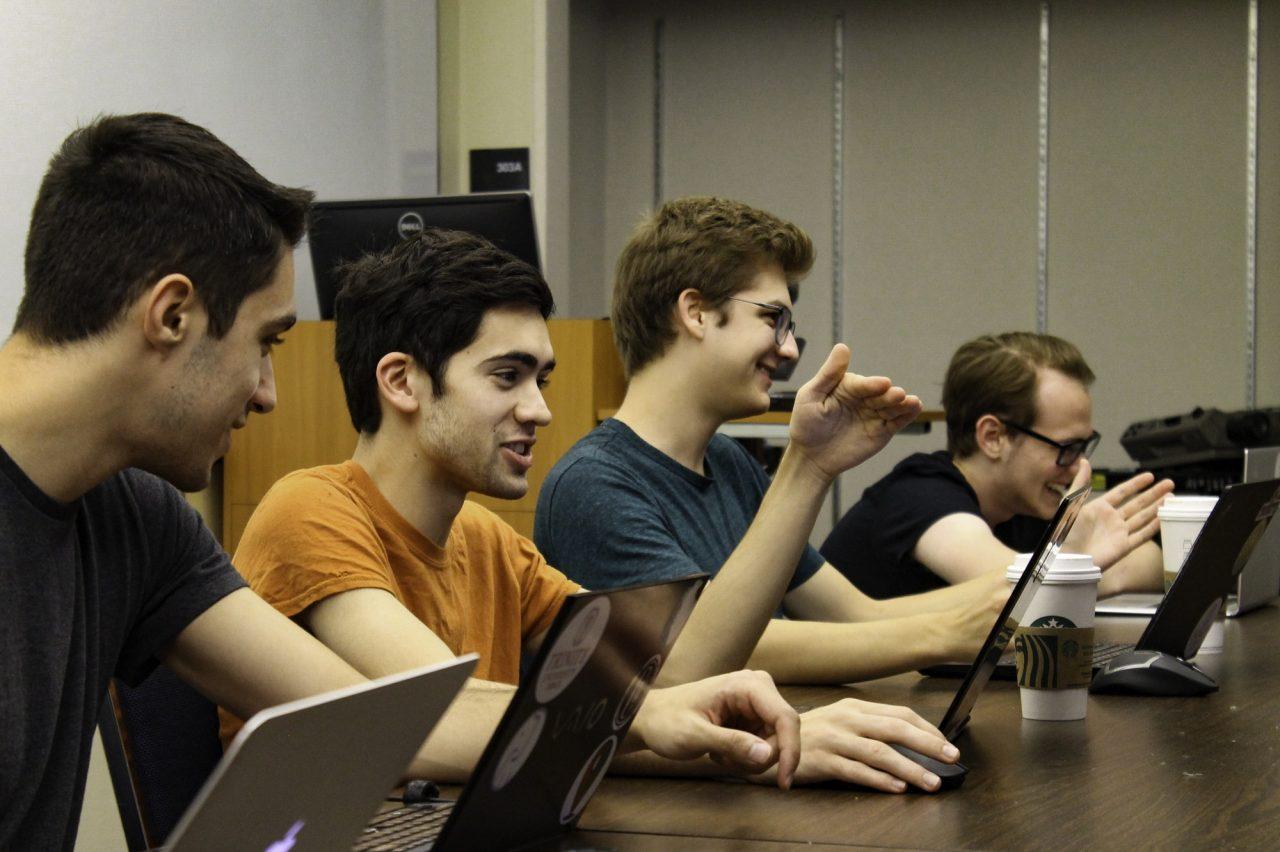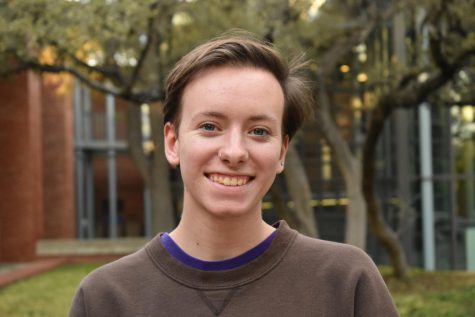Photo by Oliver Chapin-Eiserloh
Before most Trinity debate team members were even packed for the fall semester, they were diligently researching this season’s topic: national space policy. The team was preparing for the first tournament of the year at Georgia State University.
After that tournament in early September, debaters got a sense of what their opponents had researched, and with a short window of time in between to adjust and improve strategies, Trinity Debate traveled to the University of Kentucky this past weekend to compete all over again.
Seniors Ian Dill and Ansh Khullar represented Trinity well, placing seventeenth overall after going through eight preliminary rounds. According to director of Debate William Jensen, there were about 75 teams competing that weekend.
Dill and Khullar have been a team within Trinity Debate all four years of college. Their debate topics have included healthcare and climate change. This year, it’s all about national space policy.
“It really activates interesting controversies, and I just enjoy the academic research component and having the reward for good research come in a competitive setting,” Dill said. “Debate in my mind is at its best when it’s just a research game.”
As the only seniors on the squad this year, Dill and Khullar travel to the most tournaments out of everyone and act as leaders for underclassmen. On average, they spend two to three hours on debate work every day and significantly more right before a tournament. It’s rigorous, but Khullar said it’s beneficial in the long run.
“It makes you a much better student,” Khullar said. “It’s much easier to write papers, research and [do] general homework things because you’ve trained yourself to really be able to work in high pressure and intense situations.”
This year, Trinity debate gained six first-year students in addition to numerous sophomores, making it a young team. In total, there are five pairs who are considered competitive traveling teams.
Sophomore Sam Lair has enjoyed his time on the debate so far. He especially appreciates the resources available for the team at Trinity.
“I’m coming into college debate from a very small public high school in Salt Lake [City], where we were essentially funding everything ourselves. So, having access to resources, coaching, the fact that I no longer have to buy a plane ticket to go to a tournament is revolutionary,” Lair said.
At weekly meetings, students in debate work on arguments, watch speeches and hold practice debates, sometimes switching up partners for fun.
With policy topics like national space cooperation, Khullar said a substantial amount of research is needed to understand the topic, let alone to argue about it with nuance. Dill said often all the research and practice will still not be enough to win every debate.
“That kind of thing can be demoralizing if you let it get to you,” Dill said. “It’s easy to rationalize it like you spend so much time doing all this research and then someone comes along and makes the decision that it doesn’t make sense. It can feel bad. It does early on. But being able to see through that and move past that is pretty helpful for making debate sustainable and fun.”
Even though being on the Trinity debate team requires experience and a time commitment, students get the opportunity to craft arguments and have conversations that are politically relevant.
“People are definitely interested in doing debate things right now just because I think our political environment is so polarized,” Khullar said. “Everyone has an opinion on so many different controversial issues.”
According to Jensen, who debated for five years before entering the world of debate coaching, competitive debate prepares students for jobs in law specifically and also helps add depth to their education as a whole.
“Debate really trains the mind to be able to assess, analyze and approach arguments from a very particular, sophisticated and specific orientation,” Jensen said. “Given four years of participation on the debate team, those people go out into the world and have a different capacity that most other students get in other academic programs. In a way, it combines some of the best aspects of the liberal arts experience, but clarifies, concentrates and concretizes that experience in a very particular and focused manner.”
Although professors are often displeased with Khullar and Dill missing class to travel to tournaments multiple times each semester, they both said it’s worth it. Jensen said if there’s any time to do high-level, competitive debate, it’s now.
“College debate is its own more difficult atmosphere,” Jensen said. “It’s the pro leagues. There is no professional debating. They’re in it right now. Everybody works hard, everybody tries hard, everybody does their own research, everybody’s ready.”
Additional reporting by Kara Killinger








